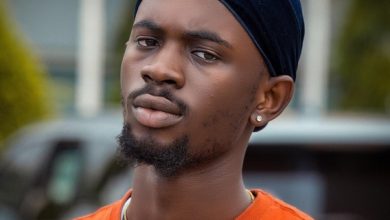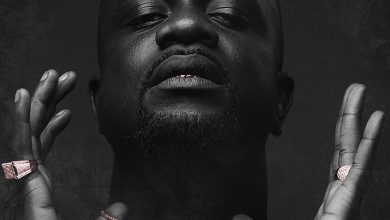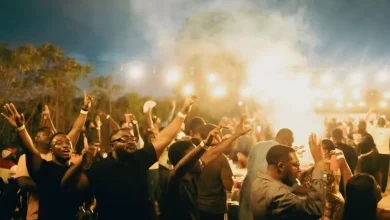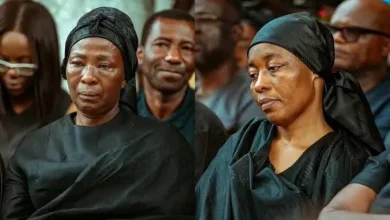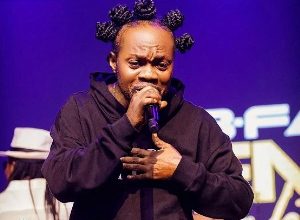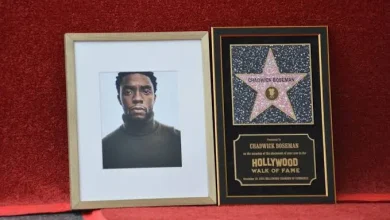A Tribute to Charles Kwadwo Fosu, Daddy Lumba: The Voice That Carried Our Nation
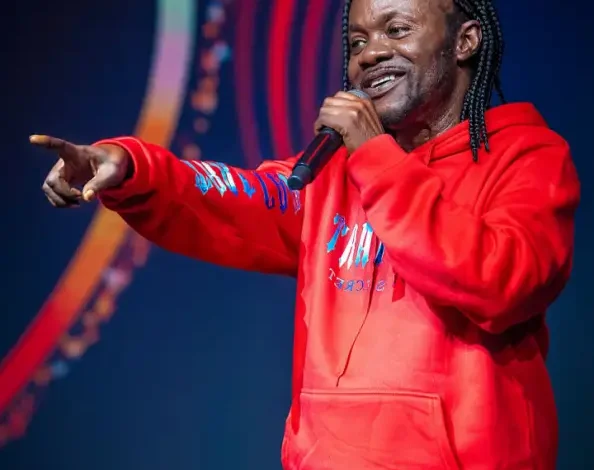
The throbbing heartbreak persists, tear ducts still well every other hour, the overwhelming tributes from far flung corners of the earth still pour in a week after our collective hearts were shattered into bits. Charles Kwadwo Fosu, our beloved Daddy Lumba, has departed this world, leaving behind a silence so loud it echoes in every corner where his voice once rang, we feel bereft as a nation struggling over a death long foretold in lyrics. Sons and daughters in the diaspora feel a profound sense of loss.
Daddy Lumba was not just a musician. He was the soul of our stories. He was the voice that spoke when we could not find the words. From the dusty streets of Nsuta to the cold winds of Cologne, Germany, he carried the weight of our dreams, our heartbreaks, our prayers, and our triumphs. His life as an immigrant in Germany was not just his own; it was the mirror of thousands of Ghanaians who left home in search of something better. The stories of family and those who we share love and identity with. He sang of our hustle, our longing, our joy, and our pain. He gave melody to our silence in a somewhat spiritual way.
In Akwanoma, his voice wove a hymn of human hunger, the ache for fame, the weight of fortune, each step paved with the bones of the self, all to gift the unborn a gilded dawn. In Me Mpaebo, he knelt before God, crying for the womb that would not bear fruit, and in doing so, gave voice to countless women and men who suffer in silence. Sika Asem reminded us that laziness is a thief of destiny, and Makramo was his solemn farewell to those he loved, entrusting them to the care of those he believed would protect them.
Mpem Mpem Do Me taught us that love is not always returned, but that there is always someone who will love us deeply. In Mesom Jesus, he lifted his hands to the heavens, declaring his faith in the One who never fails. Ebisi Eye Eduro showed us how love, when misunderstood, can feel like a spell cast upon the heart. And Anidaso Wo Ho Ma Obiaa—that song was a balm, a reminder that hope belongs to everyone, no matter how dark the night.
And then there was Theresa. In that song, we heard the voice of a man who had known love, who had been lifted by it, and who never forgot the hands that held him when he was weak. It was gratitude in its purest form.
Daddy Lumba’s music was never just entertainment. It was our diary. It was our prayer. It was our protest. It was our celebration. From the Bronx to Berlin, from the DMV to Tokyo, from Amsterdam to Cape Town, wherever Ghanaians gathered, his voice was there. It reminded us of who we are, where we come from, and what we hope to become.
He was arguably the greatest Ghanaian musician in living memory whose songs connected the great, the meek, the poor and rich, philanderers and devouts. And now, he is gone. But the tongue never rots—tekyerema mpro. His voice will never die. His songs will continue to speak for us, to us, and through us. We have lost a jewel, but we have inherited a god, for in death we shall deify him that those unborn will pay him homage in their age of glory.
Rest well, Daddy Lumba. You carried us through life. Now may the angels carry you home. Sekyereniiba Kwadwo Fosu, Obrempong, nantie brebre.
Tribute from Nana Kyere Agyemang



